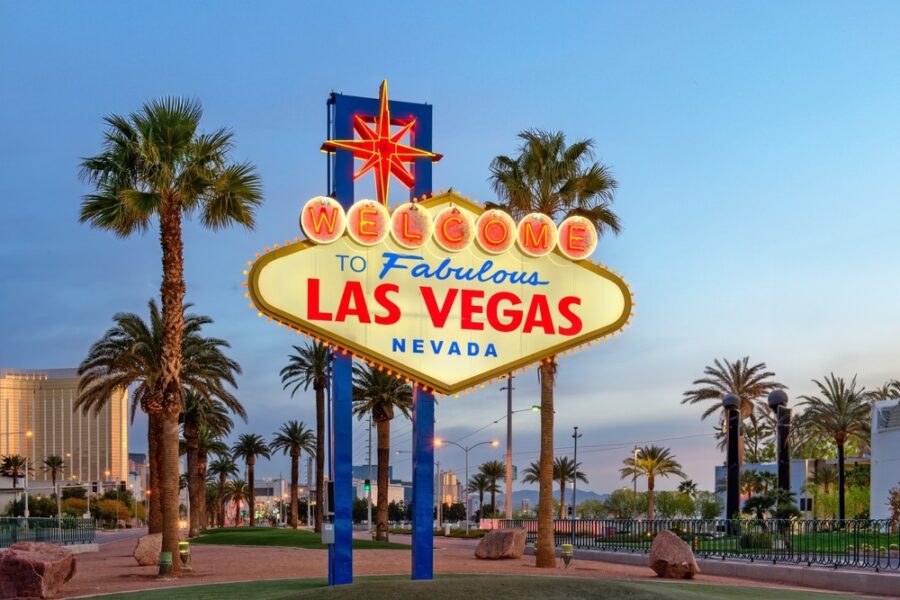FanDuel and DraftKings exit Nevada amid prediction market crackdown

The Nevada Gaming Control Board has accepted the surrender of the licenses of sportsbook operators FanDuel and DraftKings, clarifying that contracts tied to sports events and other outcomes are considered wagering under state law.
The regulator issued a notice confirming that FanDuel parent company Flutter Entertainment had surrendered its Order of Registration, and granted administrative approval for DraftKings to withdraw its pending applications.
The regulator previously issued a formal notice to licensees, warning against offering sports event contracts on prediction markets. It follows similar cautions issued in Ohio and Michigan.
It is part of a broader nationwide crackdown on prediction market platforms, which has seen New York propose new legislation and Massachusetts sue prediction platform Kalshi.
In a statement the regulator said, “It has been made clear to the Board that FanDuel and DraftKings intend to engage in unlawful activities related to sports event contracts. This conduct is incompatible with their ability to participate in Nevada’s gaming industry.”
The notice included further warnings that partnerships or associations with firms offering event-based contracts outside Nevada could impact a licensee’s standing.
The statement is a clear message to Nevada-licensed operators and applicants that involvement in non-traditional wagering arrangements may jeopardize licensing status.
Abi Bray brings strong researching skills to the forefront of all of her writing, whether it’s the newest slots, industry trends or the ever changing legislation across the U.S, Asia and Australia, she maintains a keen eye for detail and a passion for reporting.
Verticals:
Sectors:
Topics:
Dig Deeper
The Backstory
Why Nevada’s warning matters now
Nevada’s regulator put the industry on notice this fall, making clear that contracts tied to sports and other outcomes are wagers under state law and must be offered only by licensed sportsbooks. In a notice circulated to licensees, the Nevada Gaming Control Board said interest in event prediction markets had surged, prompting direct inquiries to clarify the rules. The board’s message: whether those contracts trade on federally regulated venues or not, offering or facilitating them without Nevada sports pool approval risks discipline and could call a company’s suitability into question. That position, laid out in a Control Board notice to licensees, extended to competitions as varied as esports, awards shows and elections.
The stance lands at a moment when the boundary between regulated sports betting and prediction markets is increasingly contested. By tying eligibility to a nonrestricted license with sports pool approval and compliance with all book and account rules, the Control Board aimed to foreclose attempts to route event-based products through financial market frameworks. The regulator also warned that partnerships with firms offering event contracts elsewhere, absent proper authorization, could threaten a Nevada licensee’s standing. That framing put pressure on operators and applicants to choose sides amid a fast-evolving product landscape.
Nevada’s view also highlights a basic tension: if a product looks and behaves like a bet to consumers, the state will treat it as gambling regardless of how it is labeled in other jurisdictions. That line-drawing is shaping corporate strategy and licensing decisions, as companies weigh whether continued involvement with event-contract platforms outside Nevada is worth potential regulatory costs inside the state.
The legal gray zone around swaps and “bets”
The definitional fight is not limited to Nevada. In New Jersey, a high-profile case tests whether a prediction market can classify sports contracts as financial swaps regulated by the Commodity Futures Trading Commission, rather than as wagers overseen by state gaming laws. An equity research note summarized the appellate panel’s questions and the possible outcomes, concluding the process could still favor incumbents. Judges appeared open to the argument that some sports outcomes may carry “commercial consequence” under federal law, while signaling skepticism about player props and similar products. That readout, captured in Jefferies’ analysis of the New Jersey hearing, underscores how the case could carve distinctions within sports contracts rather than delivering a blanket ruling.
The crux is whether federal commodities law can preempt state gambling frameworks for certain event contracts. If courts permit a narrow class of swaps-based sports products to continue, states could respond with tighter definitions and guardrails. If courts side with state regulators, it would validate positions like Nevada’s and reduce avenues for workarounds. Either way, analysts have argued that clarification benefits large sportsbooks by curbing uncertainty and raising barriers for new entrants pivoting from prediction markets into quasi-betting features.
Consumer protection suits raise parallel risks
While regulators scrutinize product categories, local officials are pressing operators on marketing and responsible gaming practices. Baltimore sued DraftKings and FanDuel parent Flutter Entertainment under the city’s consumer protection ordinance, alleging the companies misled customers with promotional offers and targeted people with gambling problems using data-driven outreach. The filing, brought by the City Solicitor and outside counsel, framed the case as a public protection measure focused on vulnerable residents. The claims and the city’s posture are detailed in Baltimore’s lawsuit against DraftKings and FanDuel.
The companies removed the case to federal court, citing diversity jurisdiction and the amount at stake, a step that could reshape the timeline and legal strategy. Their notice argued the District Court of Maryland has authority given the parties’ domicile and the requested penalties. The city has a limited window to contest the removal and seek a return to state court. The procedural maneuvering is outlined in the removal of Baltimore’s case to federal court.
For operators, the Baltimore action adds a different kind of exposure than product categorization battles. It focuses on promotions, targeting and safeguards, areas that state regulators already police but where municipal or state attorneys can escalate with litigation. Even if the companies prevail, the discovery and publicity can drive policy responses, adjust compliance expectations and increase the cost of customer acquisition in markets beyond Maryland.
Wall Street’s read on prediction markets and parlays
Investor sentiment has swung with each expansion of prediction-market offerings into sports. When Kalshi rolled out NFL parlays, sports betting stocks briefly sold off as traders extrapolated share shifts from a product long dominated by licensed books. Subsequent reporting suggested the initial reaction overshot the near-term reality: early parlay volumes were a small fraction of overall trading on the platform and far below the parlay contribution to sportsbook revenue. Still, the episode signaled how closely investors are watching prediction markets’ encroachment into traditional betting categories. The dynamics and data points are laid out in analysis of the market’s response to Kalshi’s NFL parlay feature.
The scale question remains pivotal. If prediction venues continue to post nine-figure weekly volumes centered on sports, regulators will face pressure to reconcile consumer-protection rules and tax regimes with activity migrating outside licensed books. Conversely, if volumes concentrate in narrow, arguably hedgable outcomes with demonstrable commercial consequences, courts may be more willing to allow federal oversight to coexist with state gambling prohibitions.
Stakes for licensing, product road maps and partnerships
Nevada’s posture forces operators to map national products against the strictest state’s standards. That has immediate ramifications for licensing applications, suitability reviews and vendor relationships. The Control Board’s emphasis on association risk means even indirect ties to event-contract platforms could be scrutinized. Companies may unwind partnerships, ringfence operations or shelve offerings that test the line between swaps and bets to protect access to Nevada’s market and reputation.
The multistate patchwork complicates go-to-market choices. A green light in one state or federal forum does not inoculate a product elsewhere, and public actions like Baltimore’s can shift the political calculus. As courts in New Jersey weigh the contours of permissible contracts and as cities and states push aggressive consumer-protection theories, operators face a dual-front challenge: defend the regulatory perimeter while tightening marketing and responsible gaming controls.
For now, clarity is uneven. Analysts argue that incumbent sportsbooks benefit from any resolution that narrows gray areas and limits the scope of unlicensed competition. But until a consensus emerges among regulators and courts, the risk is asymmetrical for companies straddling both worlds. Nevada has effectively told them to pick one.







